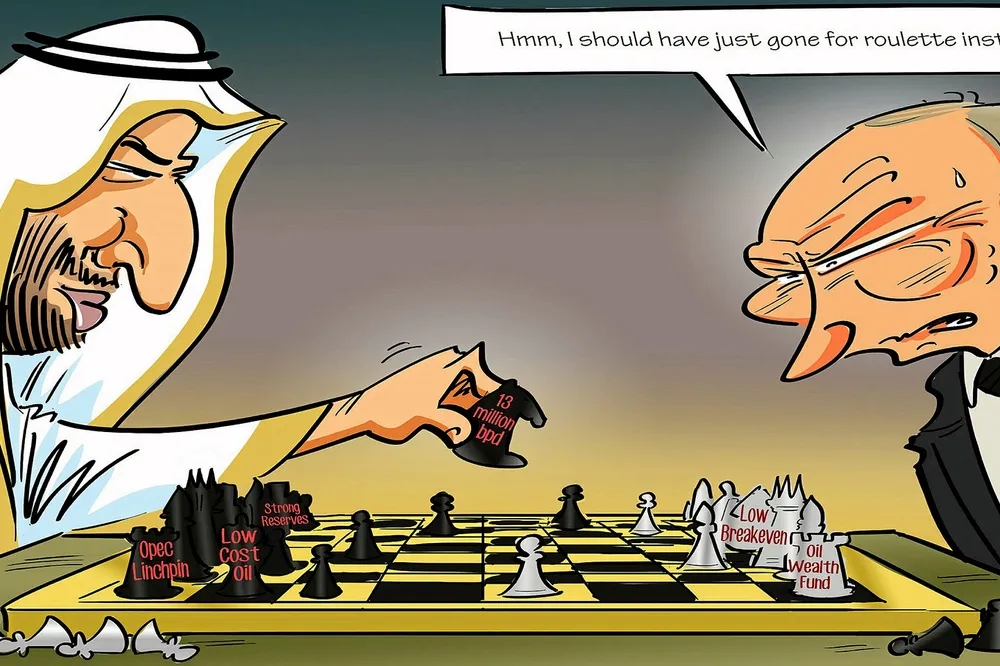OPINION: Saudis take price war to Russia
Riyadh primes oil output to punish Moscow for refusing to support new cuts in face of coronavirus and low demand

Riyadh primes oil output to punish Moscow for refusing to support new cuts in face of coronavirus and low demand
